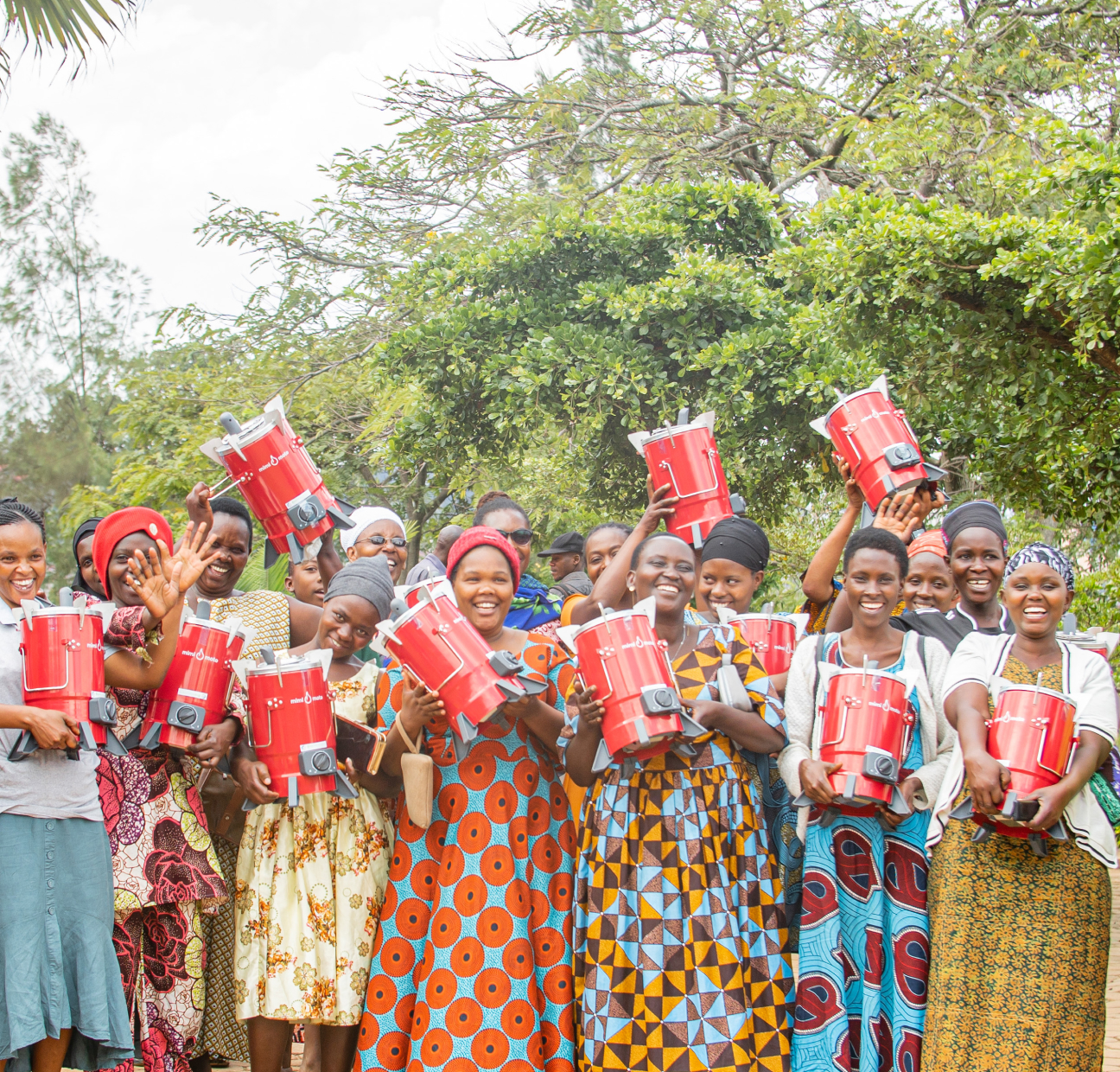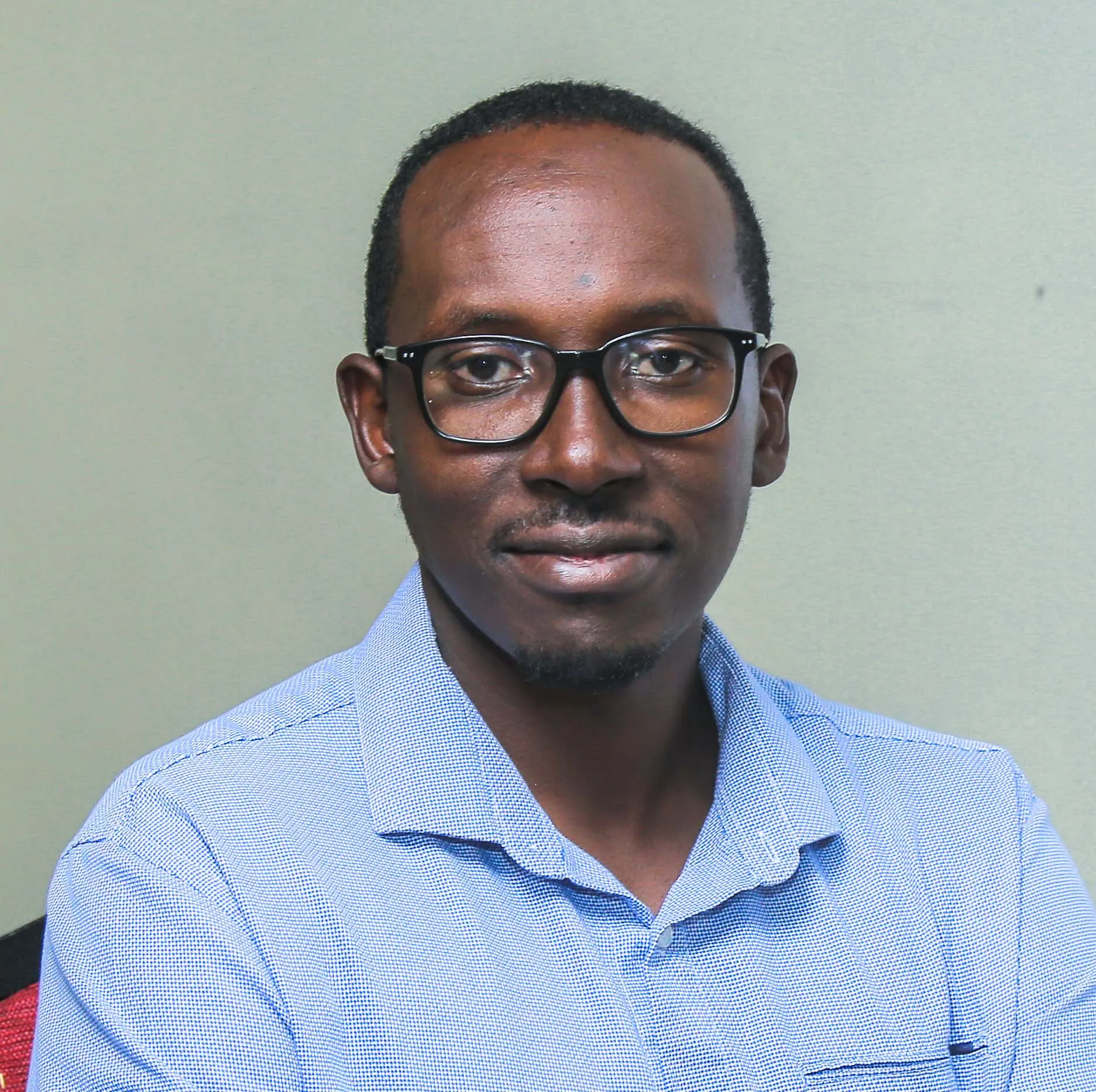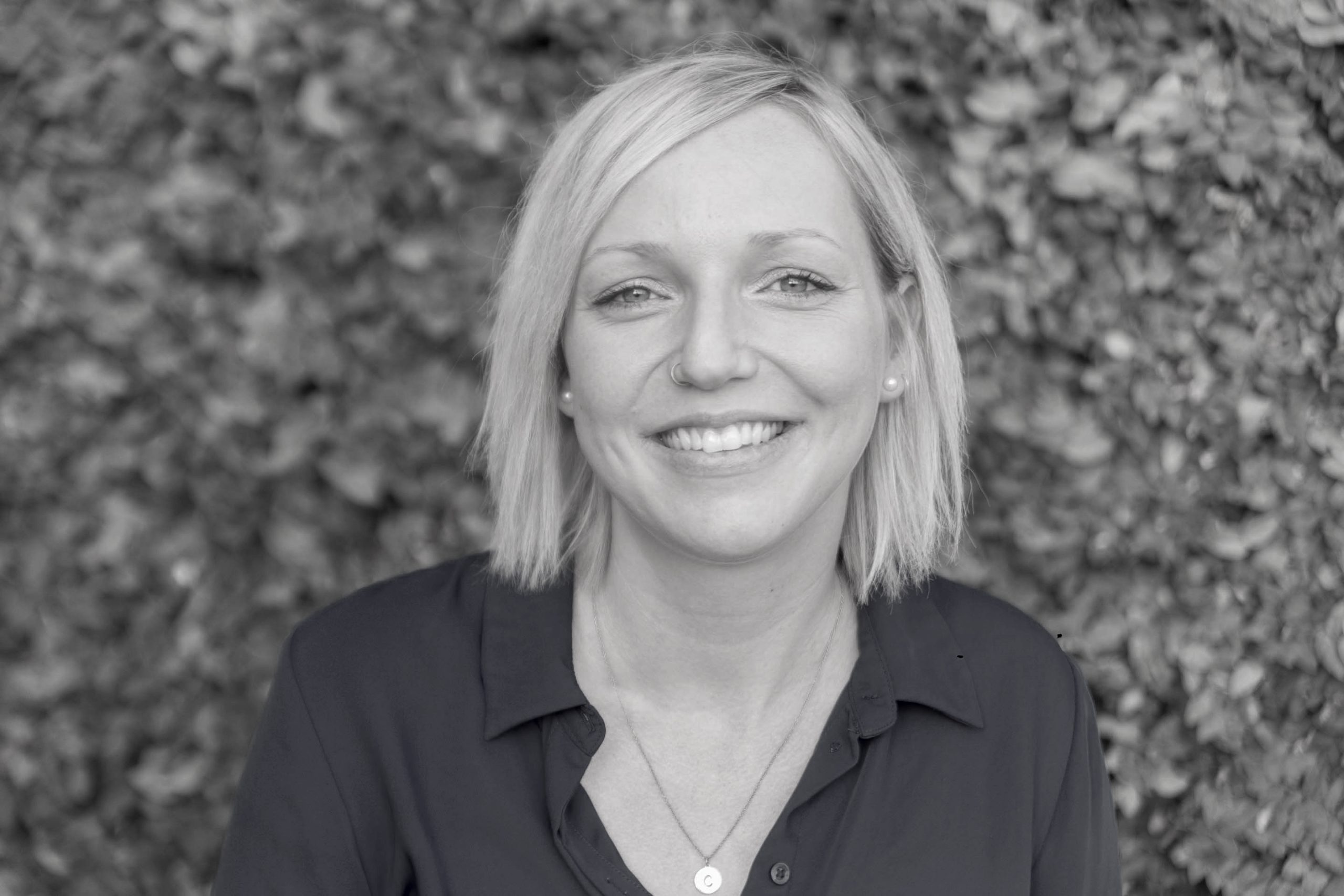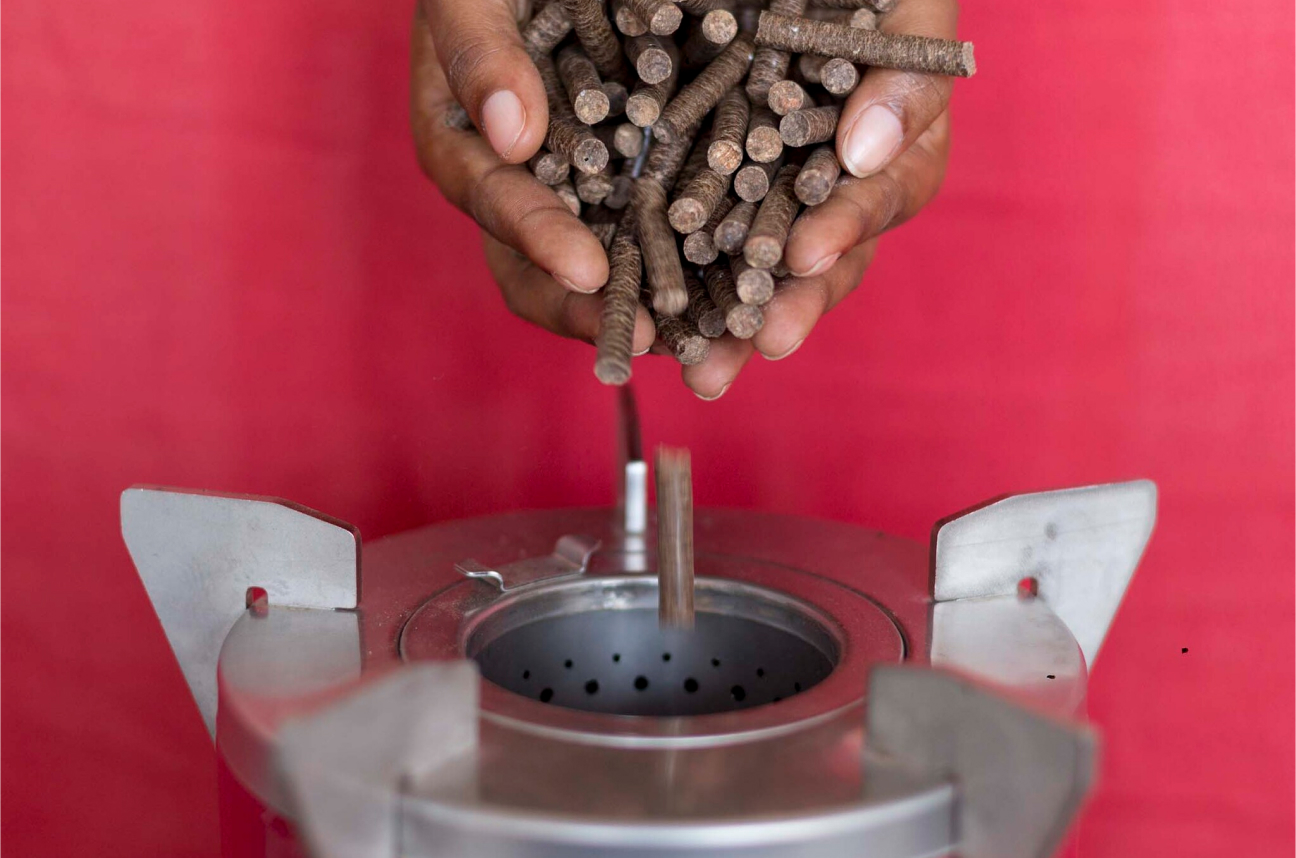BioMassters
‘One of the challenges faced in Rwanda is that the country is landlocked, meaning all imports have to be transported from the coast which makes a lot of people’s modern energy options very expensive. ’

Claudia Muench, BioMassters
It’s what makes BioMassters’ such a well-suited solution for the Rwandan marketplace: modern, affordable,low-carbon cooking reliant on local biomass pellets made from waste wood. Even more important than drastically reduced emissions compared to the dominant cooking fuel of charcoal is the affordability factor – “we want to make sure that everyone can afford to cook.Cooking is not optional.”
BioMassters came to life when six former colleagues from a previous pellet programme (three Rwandans, two Dutch, and one German-Brit) assembled feedback from former customers and other stakeholders to find out how to build a better pellet solution for Rwanda, taking into account vital local know-how. “You can’t just give them a stove and not answer the question of where the fuel will be coming from,” assures Muench. “Households spend more money on the cooking fuel than on the cooking stoves. Being able to produce low-cost modern fuel is the secret to a scalable and viable business. “
“Pellets are very efficient, but you need the right stove that is tuned to the pellets.” In that respect BioMassters has a heavy burden, having to create demand for their own supply. So far, however – it’s working. Despite only moving to full fledged operations at the start of this year, the project has built up impressive pellet production capacity of over 5 tons per day, acquired 1,000 customers over the last quarter and started to export pellets to Kenya and DRC, and the waiting list for future products is assuringly long.
As the company is growing and making a mark in the Rwandan urban market, they are also concluding their carbon accreditation to be able to help fund the business in its growth phase and share carbon revenues with customers. Most importantly, BioMassters will be sharing more than 25% of its carbon revenues with its customers in the form of cashbacks. This ensures that the carbon finance flows back to the source of the emissions reduction – the customer. In a dynamic and rapidly evolving carbon market, that hasn’t always been able to deliver on its promises — this is a bold and important statement to make.
If 2021 was about proof of concept for BioMassters’ ‘tool-and-fuel model’, 2022 is about proof of scalability. 2023 will be about proof of profitability, and the firm is working hard to increase sales, while keeping a lean cost structure and ensuring reliable supply of pellets. Rwanda is a particularly fast-growing, safe, and promising African market, enough for the team to have confidently bought and upgraded an old pellet factory to suit their needs. They are currently seeking funding to complete the process of setting up a modern 4t/hr pellet production plant. A nearly finished feasibility study suggests that this is a viable plan.
Why are BioMassters going to succeed? Given the energy poverty in the region and the expected climate damage caused by deforestation and high emission cooking, it is clear that the time for this climate-tech company has come. “Pellet cooking significantly improves the cooking experience for people coming from dirty charcoal. It is cleaner, quicker and cheaper. Our PAYGO consumer financing option also ensures that the majority of urban households will be able to afford the Tier 4 gasification stove we offer” according to Muench. “We see very little dropouts among our customers, and we see customers who have switched entirely – because the solution is so good.” The demand is there, now BioMassters needs the capital to take its production and distribution to the next level.






